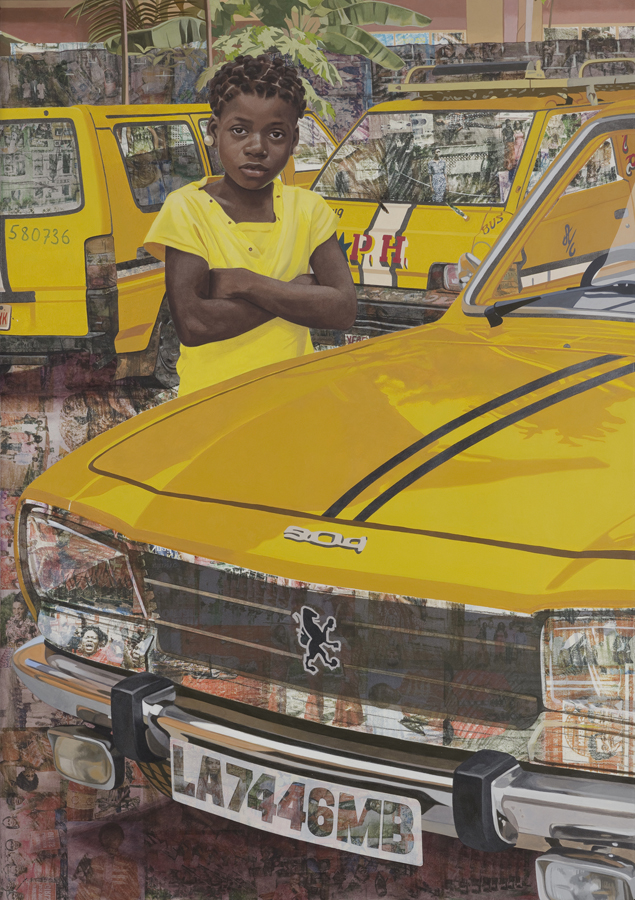One of today’s most celebrated contemporary painters, Njideka Akunyili Crosby has developed a signature style of collaged paintings that feature photographic transfers (drawn from magazines, advertisements, and family albums) related to memories and imagery from her childhood in Nigeria. Often featuring interior scenes, her paintings represent multicultural spaces, immigrant spaces, or, as she says, spaces where more than one culture lives.
The series The Beautyful Ones (2014–ongoing) takes intergenerational memory and futures—both real and imagined—as its subject, incorporating images of Nigerian children from the artist’s family photographs or from snapshots taken on recent visits to Nigeria. Its title references The Beautyful Ones Are Not Yet Born (1968) by Ghanaian author Ayi Kwei Armah, a novel that laments the lost idealism for a better Africa that characterized many post-independence African countries in the 1960s. Crosby reinstates this optimism in her own and subsequent generations while offering a powerful perspective on the complexities of a contemporary diasporic experience. “The Beautyful Ones” Series #7 is unique in setting its subject in an exterior, rather than an interior space. In this energetic street scene, a girl stands, arms folded, beside a Peugeot 504 sedan—a vehicle strongly associated with the middle class in Nigeria, where it was assembled from 1975 until 2006. While the car stands as a cultural icon whose surface both reflects and contains other imagistic references from the artist’s archive, the girl stands strongly, directly regarding the viewer, in a composition that calls into question what one can know from a picture, and what one can know of childhood itself.
This work enriches the museum’s holdings of portraits and advances the museum’s commitment to building an inclusive permanent collection and its aspiration to introduce more global artists and practices. The work’s incorporation of appropriated imagery and collaged personal archives connects it to pieces by Carol Bove, Ellen Gallagher, Lorna Simpson, and Leslie Hewitt, among others.
